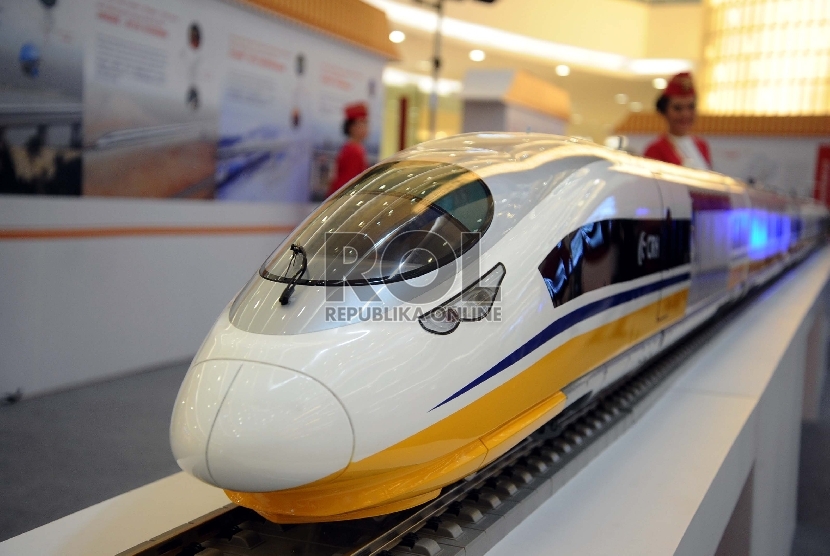REPUBLIKA.CO.ID, JAKARTA -- The high-speed railway project connecting Jakarta and Bandung is expected to create 40,000 job opportunities each year, China's Ambassador to Indonesia, Xie Feng stated.
"The construction of the high-speed railway project will create 40,000 job opportunities each year. The area around the station could also be developed, such as industrial housing, which would be welcome for the opportunities it would create," Xie Feng said at a press conference on Monday.
The ambassador estimated that the high-speed train would help boost development in the cities and villages.
"There will be more tourists in the country and from abroad, who will visit Bandung by using the high-speed train that has a maximum velocity of 350 kilometers per hour," the ambassador pointed out.
In addition, the project will also cut the journey between Jakarta and Bandung to 35 minutes, from about three to five hours.
"Three fast train stations will be built in Jakarta, namely at Gambir, Monas and Manggarai, which will cater to a large number of passengers. We will also build a station at Halim, which will be connected to the Light Rail Transit (LRT) system," the ambassador remarked.
The ambassador also pointed out that the railway project will reduce traffic congestion and Jakarta's pollution.
"Regarding security issues, China will prioritize the quality of security. The Chinese government believes that quality and safety are the main principles of high-speed train development," he said.
According to data from the International Union of Railways (UIC), over the last decade, the percentage of China's railway accidents was 0.02 injuries or deaths per billion kilometers, and this figure was the lowest rate worldwide, Ambassador Feng noted.
If Indonesia accepted China's proposal, both countries will establish a joint venture to carry out the construction and management of the high-speed train network.
"It is in line with the demands of the Indonesian government of not using the state budget and with the guarantee of sovereignty," he said.
Indonesia will also become a majority shareholder, with 60 percent ownership and China will hold a 40 percent share in stocks. The composition is expected to help both parties prosper.
Meanwhile, the ambassador pointed out that the terms of the credit plan and Internal Ratio of Return (IRR) will ensure the project's sustainability.
According to the ambassador, China has five goals in the development of the high-speed railway project connecting Jakarta and Bandung.
Firstly, the Chinese government will cooperate with the Indonesian company to build the project.
"We will use local materials and equipment, as well as Indonesian workers in the field of construction, engineering and management. The percentage of local material and labor used could reach 60 percent," he said.
Secondly, the Chinese government will train an Indonesian team, which is able to design, operate and manage a high-speed train.
"We have signed a cooperation agreement between a consortium of Chinese and Indonesian investors," he stated.
Thirdly, the Chinese government will help Indonesia assemble and to produce rolling stocks of fast trains.
In addition, it will also help Indonesia manage, engineer, and operate a product standard system.
"Indonesia and China will cooperate to pioneer third markets, particularly markets in ASEAN countries," the ambassador remarked.


